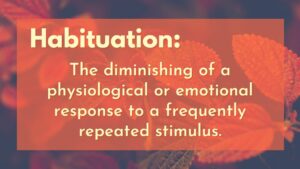Bodies Registering Harm: ICE, Grief, & Care
Bodies notice what’s happening in the world. We know you are feeling it.

“To all the parents out there, please calm down about Halloween Candy. Despite popular belief, sugar is not addictive. Candy is part of the world, and candy will be in your child’s life one day, with or without your approval. Without your approval, they are likely to be the child who goes to their friends’ houses and binges on ding-dongs, cookies, and sugar-sweetened cereals. They’ll go to the convenience store once they have the freedom to do so and buy up all the candy they can, hide it in their room, and experience so much shame around eating it.
With your approval, they can learn to have a healthy relationship with candy, where it is just one of the many delightful things to enjoy in this life. Help your children become competent eaters in this food- and fat-phobic world. Calm down!”
This is something Dana wrote on Facebook years ago when she became more aware of the lengths people go through to manage the Halloween candy. Some allow their kids to participate in the “trick or treating” up until the time of consumption but have them trade it in for a toy when they get home, or leaving it for the “candy fairy”. Within a matter of minutes, it had 50 shares.
Some have costume parties or other hands-on activities to celebrate the holiday and create family memories, which would be useful for kids with severe food allergies – which are certainly very real. But let’s be honest, lots of parents do these things to manage their own anxiety about sugar.
Taking a child trick or treating only to take the candy away later seems like the wrong message to send to children if we want to raise competent eaters and preserve our children’s trust in their bodies. We live in a culture that has become suspect of ingredients and readily pathologizes overeating but rarely considers the physical and emotional consequences of normalizing food restriction and dietary restraint.
You see, kids have the remarkable ability to regulate their food intake, if we let them by providing structured, sit down meals and snacks that include a wide variety of foods and don’t enhance the value of certain foods by saying things like “Eat this, not that“ and “You can have dessert once you finish your dinner.“ And of course, OF COURSE, they are going to be excited and go overboard on the Halloween candy for a day or two. Especially if you restrict sugar sweetened foods much of the year. Most kids will lose interest after a few days and eat fewer and fewer pieces of candy over time. It’s called the habituation effect, and there is science to back it up.

Basically, the more you are exposed to a particular food, the less you desire to eat it. This has been shown for a variety of foods, including potato chips, pizza, and chocolate. Kids need to go through this normative habituation experience. Child feeding expert Ellyn Satter says:
“Halloween candy presents a learning opportunity. Work toward having your child be able to manage their own stash. For them to learn, you will have to keep your interference to a minimum. When they come home from trick or treating, let them lay out their booty, gloat over it, sort it and eat as much of it as they want. Let them do the same the next day. Then have them put it away and relegate it to meal- and snack-time: a couple of small pieces at meals for dessert and as much as they want for snack time.
If they can follow the rules, your child gets to keep control of the stash. Otherwise, you do, on the assumption that as soon as they can manage it, they get to keep it.
Despite what most people think, studies show sugar does not affect children’s behavior or cognitive performance.“
At the end of the day, this has become a place for parents to manage their anxiety about the uncertainty of it ALL. When the Halloween candy experience is embraced, the kids enjoy it while it also becomes a potluck for the stuffed animals, freight for the trucks, and gifts to the adults in their lives. Slowly forgotten about over time.
Adults are the ones that must claim their own food anxieties, fear, and shame so that they can get out of the way and raise children to have relationships with food that aren’t rooted in fear or deprivation or the need to be right about it all.
When it comes to food, don’t go after the “right” answer for your kids, go after the sustainable one that is steeped in trust that their relationship with food can be less conflicted than your own. Your child is truly developing a relationship with food. Just like the relationships we develop with other people, there are stages of trying, exploring, testing the boundaries, seeing what feels good and what doesn’t and then, over time moving into a more natural “known” rhythm. Your subtlest messages about food are powerful. If you communicate distrust of a food yourself or lean into simplifying food as good or bad, your child will notice and that food will gain power. Virginia Sole-Smith says,
“Don’t get too hung up on managing the candy. Instead ask yourself, did I give them enough access, and enough time to really enjoy this experience?”
Letting your child explore food is an exercise in managing your own anxiety and parenting shame. You are not bad or wrong if your child eats candy. But you may be anxious as you watch them fondle or even tear open those packages. Remind yourself that this is temporary, which is one of the best parenting mantras of all time.
We hope you have a Happy Halloween!
Love,
